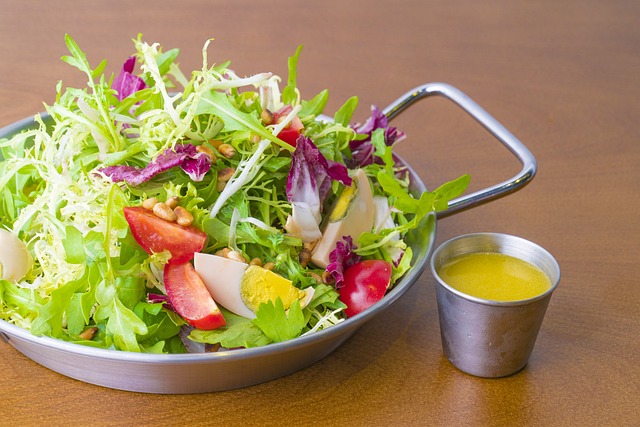Community Supported Agriculture (CSA) programs in Eugene, Oregon, are transforming the culinary landscape by fostering direct connections between local farmers and consumers, promoting farm-to-table dining, and emphasizing sustainability. These initiatives ensure residents access fresh, locally grown ingredients, support sustainable farming practices, and contribute to a robust local food system. By enriching Eugene's vibrant food culture, CSAs stimulate economic growth, enhance food security, and reduce the city's reliance on distant food sources.
“Community Supported Agriculture (CSA) is revolutionizing Eugene, Oregon’s food scene, fostering a vibrant connection between farmers and consumers. By directly supporting local farms, CSAs strengthen food systems, promote sustainability, and reduce food miles. This article explores how these programs contribute to Eugene’s thriving culinary culture, offering fresh, locally sourced ingredients that enhance both community health and environmental conservation. Discover the rising trend of farm-to-table dining and its indelible impact on the region’s unique gastronomic identity.”
- How Community Supported Agriculture (CSA) Strengthens Local Food Systems in Eugene, Oregon
- – Explore the benefits of CSA programs for fostering direct farmer-consumer relationships.
- – Discuss the impact on local economies and food security.
How Community Supported Agriculture (CSA) Strengthens Local Food Systems in Eugene, Oregon

Community Supported Agriculture (CSA) programs have significantly boosted Eugene, Oregon’s food scene by fostering a stronger connection between local farmers and consumers. This innovative approach encourages farm-to-table dining, ensuring that residents have access to the freshest ingredients directly from area farms. By subscribing to a CSA, individuals support sustainability in their community, promoting environmentally friendly farming practices and strengthening local food systems.
CSA members receive regular deliveries of seasonal produce, often including rare or heirloom varieties, which encourages people to embrace diverse and nutritious foods. This direct-to-consumer model also helps farmers by providing a stable market for their goods, allowing them to focus on sustainable farming techniques that benefit both the land and the local ecosystem. As a result, Eugene’s food culture has become more robust and resilient, with a growing number of restaurants and markets embracing locally sourced ingredients.
– Explore the benefits of CSA programs for fostering direct farmer-consumer relationships.

Community Supported Agriculture (CSA) programs are transforming Eugene, Oregon’s food scene by fostering direct relationships between farmers and consumers. These innovative initiatives encourage a farm-to-table approach, ensuring that residents have access to the freshest, locally grown ingredients. By subscribing to a CSA, consumers directly support nearby farms, promoting sustainability and strengthening the local economy.
CSA members often gain exclusive access to seasonal produce, fostering a deeper connection with their food’s origin. This personal touch not only enhances the dining experience but also educates consumers about agriculture practices and the importance of supporting local farmers. As a result, Eugene’s culinary landscape is becoming more vibrant, with restaurants and residents alike embracing the fresh ingredients and unique flavors that CSA programs bring to the table.
– Discuss the impact on local economies and food security.

Community Supported Agriculture (CSA) initiatives have significantly boosted Eugene, Oregon’s food scene by fostering a direct connection between farmers and consumers. This model promotes farm-to-table dining, ensuring that residents have access to fresh, locally sourced ingredients year-round. By supporting local farms, CSAs contribute to the region’s economic vitality, keeping money within the community and strengthening small-scale agricultural operations.
Moreover, these programs enhance food security at the local level, creating a sustainable food system. Consumers benefit from a diverse range of high-quality produce, while farmers gain stable markets for their goods, encouraging continued investment in sustainable farming practices. This mutually beneficial arrangement not only enriches the culinary landscape but also reinforces the community’s resilience by reducing reliance on distant food sources, emphasizing the importance of sustainability in Eugene’s thriving food culture.






